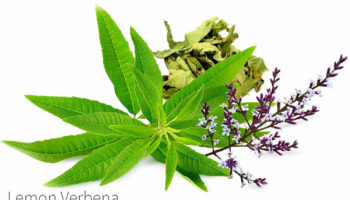Contents
Eucalyptus essential oil
Eucalyptus oil is the generic name for distilled oil from the leaf of Eucalyptus, a genus of the plant family Myrtaceae native to Australia and cultivated worldwide. Eucalyptus oil has a history of wide application, as a pharmaceutical, antiseptic, repellent, flavoring, fragrance and industrial uses. The leaves of selected Eucalyptus species are steam distilled to extract eucalyptus oil and and the oil are used to make medicine.
China produces about 75% of the world trade, but most of this is derived from the cineole fractions of camphor laurel rather than being true eucalyptus oil 1. Significant producers of true eucalyptus oil include South Africa, Portugal, Spain, Brazil, Australia, Chile, and Swaziland.
Though eucalyptus oil is used medicinally for many purposes, there isn’t enough scientific evidence so far to rate it as effective for any of them.
Eucalyptus leaf is used for infections, fever, upset stomach, and to help loosen coughs. The leaf is also used for treating respiratory tract infections, whooping cough, asthma, pulmonary tuberculosis, osteoarthritis, joint pain (rheumatism), acne, wounds, poorly healing ulcers, burns, bacterial dysentery, ringworms, liver and gallbladder problems, loss of appetite, and cancer.
Eucalyptus oil should not be taken by mouth or applied to the skin full-strength. It must be diluted for safety. Eucalyptus oil can be harmful in large amounts. The diluted oil is taken by mouth for pain and swelling (inflammation) of respiratory tract mucous membranes, coughs, bronchitis, sinus pain and inflammation, asthma, chronic obstructive pulmonary disease (COPD), and respiratory infections. It is also used as an expectorant to loosen coughs, antiseptic, fever reducer, and in vaporizer fluids. Other uses include treatment of wounds, burns, ulcers, and cancer.
Diluted eucalyptus oil is applied directly to the skin for pain and swelling of respiratory tract mucous membranes, joint pain, genital herpes, and nasal stuffiness. It is also used as an insect repellent.
In dentistry, eucalyptus oil is included in products used as sealers and solvents for root canal fillings.
In foods, dried eucalyptus leaf is used as a flavoring agent.
In manufacturing, eucalyptus oil is used as a fragrance in perfumes and cosmetics. It is also used as a mouthwash, antiseptic, liniment and ointment, and in toothpaste, cough drops, and lozenges.
What dose of eucalyptus is used ?
The appropriate dose of eucalyptus depends on several factors such as the user’s age, health, and several other conditions. At this time there is not enough scientific information to determine an appropriate range of doses for eucalyptus. Keep in mind that natural products are not always necessarily safe and dosages can be important. Be sure to follow relevant directions on product labels and consult your pharmacist or physician or other healthcare professional before using.
What is eucalyptus oil good for ?
Eucalyptol (Cineole) is a natural constituent of a number of aromatic plants including eucalyptus and their essential oil fraction. Eucalyptol (Cineole) is an organic compound which is a colorless liquid. Eucalyptol was given GRAS (Generally Recognized As Safe) status by the Flavor and Extract Manufacturer’s Association FEMA, 1965 and is approved by the Food and Drug Administration for food use. In a 1994 report released by five top cigarette companies, eucalyptol was listed as one of the 599 additives to cigarettes. It is added to improve the flavor 2.
Eucalyptus oil contains α-pinene and 1,8-cineole (also called Eucalyptol) and acts as an antioxidant, with strong radical scavenging activity 3. In a mouse model of pain-causing edema in the feet, oral administration of 1,8-cineole (Eucalyptol), which accounts for 70–90% (w/w) of the contents of eucalyptus oil, suppressed edema formation and reduced inflammation and pain 4. This effect of 1,8-cineole (Eucalyptol) is due to its inhibition of cytokine secretion by T-lymphocytes 5. Electromyography has shown that application of eucalyptus oil to a healthy subject had a myorelaxant effect, as well as promoting emotional stability 6. Moreover, in a rat model of susceptibility to pain from a hot plate, eucalyptus oil was not only analgesic but reduced edema formation and had an anti-inflammatory effect 7.
The cineole-based of eucalyptus oil is used as component in pharmaceutical preparations to relieve the symptoms of influenza and colds, in products like cough sweets, lozenges, ointments and inhalants. Eucalyptus oil may have antibacterial effects on pathogenic bacteria in the respiratory tract 8. Inhaled eucalyptus oil vapor is a decongestant and treatment for bronchitis 9. Cineole may control airway mucus hypersecretion and asthma via anti-inflammatory cytokine inhibition although there is insufficient evidence. Pre-clinical results also show that eucalyptus oil stimulates innate cell-mediated immune response by effects on the phagocytic ability of human monocyte derived macrophages 10.
The main chemical components of Eucalyptus oil, eucalyptol and alpha-terpineol, give the essential oil a soothing, cooling vapor. This makes Eucalyptus oil useful for massage.
Early research has shown Eucalyptus oil may have anti-inflammatory and analgesic qualities in as a topically applied liniment ingredient 11.
Eucalyptus oil is also used in personal hygiene products for antimicrobial properties in dental care 12 and soaps. It can also be applied to wounds to prevent infection 13.
Natural Medicines Comprehensive Database rates effectiveness based on scientific evidence according to the following scale: Effective, Likely Effective, Possibly Effective, Possibly Ineffective, Likely Ineffective, Ineffective, and Insufficient Evidence to Rate.
The effectiveness ratings for EUCALYPTUS are as follows:
Eucalyptus oil is Possibly effective for:
Acute bronchitis
Cineole (eucalyptol), a chemical found in eucalyptus oil, has mucolytic, bronchodilating and anti-inflammatory properties and reduces the exacerbation rate in patients suffering from chronic obstructive pulmonary disease (COPD), as well as ameliorates symptoms in patients suffering from asthma and rhinosinusitis. As part of a double-blind, placebo-controlled, multi-center-study, a total of 242 patients with confirmed acute bronchitis was randomly selected to participate 14. Over a period of 10 days, all patients were administered 3 x 200 mg of Cineole, or a respective placebo, per day. The primary outcome measure was a Bronchitis Sum Score, which summarizes the relevant symptoms of acute bronchitis. After 4 days of treatment it was notable, that the patient group treated with Cineole, showed significantly more improvements of the bronchitis-sum-score than those of the placebo group. The statistical significant difference of the individual outcome measures was especially underlined by the frequency of cough fits after 4 days. The effects of Cineole in the treatment of acute bronchitis were clearly measurable and could be proven after a treatment period of merely 4 days. This study corroborates the fact that Cineole actively and significantly reduces cough frequency after four days 14.
In another double-blind, placebo-controlled multi-center-study where 242 patients were randomly assigned with stable chronic obstructive pulmonary disease (COPD) to receive 200 mg of cineole or placebo 3 times daily as concomitant therapy for 6 months during winter-time 15. The frequency, duration and severity of exacerbations were combined as primary outcome measures for testing as multiple criteria. Secondary outcome measures included changes of lung function, respiratory symptoms and quality of life as well as the single parameters of the exacerbations. Baseline demographics, lung function and standard medication of both groups were comparable. During the treatment period of 6 months the multiple criteria frequency, severity and duration of exacerbations were significantly lower in the group treated with cineole in comparison to placebo. Secondary outcome measures validated these findings. Improvement of lung function, dyspnea and quality of life as multiple criteria were statistically significant relative to placebo. Adverse events were comparable in both groups. Concomitant therapy with cineole reduces exacerbations as well as dyspnea and improves lung function and health status. This study 15 further suggests cineole as an active controller of airway inflammation in COPD by intervening in the pathophysiology of airway inflammation of the mucus membrane.
In other studies, research shows that taking a specific combination product containing eucalyptol, a chemical found in eucalyptus oil, and extracts of pine and lime by mouth for at least 2 weeks improves symptoms and reduces flare-ups in people with bronchitis 16, 17, 18.
Eucalyptus oil – Insufficient evidence to rate effectiveness for:
- Arthritis. Early research suggests that aromatherapy with a combination of eucalyptus oil, lavender, marjoram, rosemary, and peppermint oils might reduce pain and depression in people with arthritis.
- Asthma. Early research suggests that eucalyptol, a chemical found in eucalyptus oil, might be able to break up mucous in people with asthma. Some people with severe asthma have been able to lower their dosage of steroid medications if they take eucalyptol 19. But don’t try this without your healthcare provider’s advice and monitoring.
- Dental plaque. Early research suggests that chewing gum containing 0.3% eucalyptus extract might reduce dental plaque in some people 20, 21, 22.
- Headache. Early research suggests that applying a combination product containing eucalyptus oil, peppermint oil, and ethanol to the head does not reduce pain in people with headaches. However, the product might help people with headaches relax and think better 23.
- Stuffy nose 24.
- Wounds 25.
- Burns.
- Ulcers.
- Acne.
- Bleeding gums.
- Bladder diseases.
- Diabetes.
- Fever.
- Flu 26.
- Liver and gallbladder problems.
- Loss of appetite.
- Other conditions 27, 28, 29.
More evidence is needed to rate the effectiveness of eucalyptus for these uses.
Eucalyptus safety concerns
Toxicological data available on eucalyptol are rather limited, however, eucalyptus leaf is LIKELY SAFE when consumed in the small amounts found in foods. There isn’t enough information to know if supplements that contain larger amounts of eucalyptus leaf are safe when taken by mouth 30.
Eucalyptol, a chemical that is removed from eucalyptus oil and used as medicine, is POSSIBLY SAFE when taken by mouth for up to 12 weeks.
Eucalyptus oil is POSSIBLY UNSAFE when applied directly to the skin without first being diluted 31. Eucalyptus oil is LIKELY UNSAFE when it is taken by mouth without first being diluted. Taking 3.5 mL of undiluted oil can be fatal. Signs of eucalyptus poisoning might include stomach pain and burning, dizziness, muscle weakness, small eye pupils, feelings of suffocation, and some others. Eucalyptus oil can also cause nausea, vomiting, and diarrhea.
Special precautions & warnings:
Pregnancy and breast-feeding: Eucalyptus is LIKELY SAFE for pregnant and breast-feeding women when consumed in food amounts. But don’t use eucalyptus oil. Not enough is known about safety during pregnancy or breast-feeding.
Children: Eucalyptus oil is LIKELY UNSAFE for children. It should not be taken by mouth or applied to the skin. Not much is known about the safety of using eucalyptus leaves in children. It’s best to avoid use in amounts larger than food amounts 32.
Diabetes: Early research suggests eucalyptus leaf might lower blood sugar. There is concern that using eucalyptus while taking medications for diabetes might lower blood sugar too much. Blood sugar levels should be monitored closely.
Surgery: Since eucalyptus might affect blood sugar levels, there is concern that it might make blood sugar control difficult during and after surgery. Stop using eucalyptus at least 2 weeks before a scheduled surgery.
Eucalyptus interactions with herbs and supplements
Herbs and supplements that might lower blood sugar
Eucalyptus leaf might lower blood sugar. Using it with other herbs and supplements that have this same effect might increase the risk of low blood sugar in some people. Some of these products include alpha-lipoic acid, bitter melon, carqueja, chromium, devil’s claw, fenugreek, garlic, guar gum, horse chestnut, jambolan, Panax ginseng, prickly pear cactus, psyllium, Siberian ginseng, and others.
Herbs that contain hepatotoxic pyrrolizidine alkaloids
Eucalyptus can increase the toxicity of herbs that contain hepatotoxic pyrrolizidine alkaloids (PAs). PAs can damage the liver. Herbs containing hepatotoxic PAs include alkanna, boneset, borage, butterbur, coltsfoot, comfrey, forget-me-not, gravel root, hemp agrimony, and hound’s tongue; and the Senecio species plants dusty miller, groundsel, golden ragwort, and tansy ragwort.
Eucalyptus interactions with medications
Be cautious with this combination.
Aminopyrine
Inhaling eucalyptol, a chemical found in eucalyptus oil, might reduce the level of aminopyrine in the blood. In theory, the effectiveness of aminopryine may be reduced in people who inhale eucalyptol.
Amphetamines
Inhaling eucalyptol, a chemical found in eucalyptus oil, might reduce the levels of amphetamines in the blood. In theory, the effectiveness of amphetamines may be reduced in people who inhale eucalyptol.
Medications changed by the liver (Cytochrome P450 1A2 (CYP1A2) substrates)
Some medications are changed and broken down by the liver. Eucalyptus oil might decrease how quickly the liver breaks down some medications. Taking eucalyptus oil along with some medications that are broken down by the liver can increase the effects and side effects of some medications. Before taking eucalyptus oil, talk to your healthcare provider if you take any medications that are changed by the liver.
Some medications that are changed by the liver include amitriptyline (Elavil), haloperidol (Haldol), ondansetron (Zofran), propranolol (Inderal), theophylline (Theo-Dur, others), verapamil (Calan, Isoptin, others), and others.
Medications changed by the liver (Cytochrome P450 2C19 (CYP2C19) substrates)
Some medications are changed and broken down by the liver. Eucalyptus oil might decrease how quickly the liver breaks down some medications. Taking eucalyptus oil along with some medications that are broken down by the liver can increase the effects and side effects of some medications. Before taking eucalyptus oil, talk to your healthcare provider if you take any medications that are changed by the liver.
Some medications that are changed by the liver include omeprazole (Prilosec), lansoprazole (Prevacid), and pantoprazole (Protonix); diazepam (Valium); carisoprodol (Soma); nelfinavir (Viracept); and others.
Medications changed by the liver (Cytochrome P450 2C9 (CYP2C9) substrates)
Some medications are changed and broken down by the liver. Eucalyptus oil might decrease how quickly the liver breaks down some medications. Taking eucalyptus oil along with some medications that are broken down by the liver can increase the effects and side effects of some medications. Before taking eucalyptus oil, talk to your healthcare provider if you take any medications that are changed by the liver.
Some medications that are changed by the liver include diclofenac (Cataflam, Voltaren), ibuprofen (Motrin), meloxicam (Mobic), and piroxicam (Feldene); celecoxib (Celebrex); amitriptyline (Elavil); warfarin (Coumadin); glipizide (Glucotrol); losartan (Cozaar); and others.
Medications changed by the liver (Cytochrome P450 3A4 (CYP3A4) substrates)
Some medications are changed and broken down by the liver. Eucalyptus oil might decrease how quickly the liver breaks down some medications. Taking eucalyptus oil along with some medications that are broken down by the liver can increase the effects and side effects of some medications. Before taking eucalyptus oil, talk to your healthcare provider if you are taking any medications that are changed by the liver.
Some medications changed by the liver include lovastatin (Mevacor), ketoconazole (Nizoral), itraconazole (Sporanox), fexofenadine (Allegra), triazolam (Halcion), and many others.
Medications for diabetes (Antidiabetes drugs)
Eucalyptus leaf extract might decrease blood sugar. Diabetes medications are also used to lower blood sugar. Taking eucalyptus leaf extract along with diabetes medications might cause your blood sugar to go too low. Monitor your blood sugar closely. The dose of your diabetes medication might need to be changed.
Some medications used for diabetes include glimepiride (Amaryl), glyburide (DiaBeta, Glynase PresTab, Micronase), insulin, pioglitazone (Actos), rosiglitazone (Avandia), chlorpropamide (Diabinese), glipizide (Glucotrol), tolbutamide (Orinase), and others.
Pentobarbital (Nembutal)
Inhaling eucalyptol, a chemical found in eucalyptus oil, might reduce the amount of pentobarbital that reaches the brain. In theory, the effectiveness of pentobarbital may be reduced in people who inhale eucalyptol.
Eucalyptus oil overdose
Following the accidental exposure of human beings, death was reported in two cases after ingestion of 3. 5-5 ml of essential eucalyptus oil, but a number of recoveries have also been described for much higher amounts of oil.
Eucalyptus oil overdose occurs when someone swallows a large amount of a product that contains this oil. This can be by accident or on purpose.
If you or someone you are with overdoses, call your local emergency number.
Do NOT induce vomiting. If vomiting occurs, lean patient forward or place on left side (head-down position, if possible) to maintain an open airway and prevent aspiration. Keep patient quiet and maintain normal body temperature. For eye contamination, flush eyes immediately with water. Irrigate each eye continuously with 0.9% saline during transport to the hospital.
Symptoms of Eucalyptus oil overdose
Below are symptoms of a eucalyptus oil overdose in different parts of the body.
AIRWAYS AND LUNGS
- Rapid breathing
- Shallow breathing
- Wheezing
EYES, EARS, NOSE, THROAT, AND MOUTH
- Difficulty swallowing
- Burning sensation in mouth
- Tiny pupils
HEART AND BLOOD
- Rapid, weak heartbeat
- Low blood pressure
MUSCLES AND JOINTS
- Muscle weakness
NERVOUS SYSTEM
- Drowsiness
- Headache
- Unconsciousness
- Dizziness
- Seizures
- Slurred speech
SKIN
- Redness and swelling (from the oil touching the skin)
STOMACH AND INTESTINES
- Abdominal pain
- Diarrhea
- Nausea and vomiting
Home Care
Seek medical help right away. DO NOT make the person throw up unless poison control or a health care provider tells you to.
If the oil is on the skin or in the eyes, flush with lots of water for at least 15 minutes.
Outlook (Prognosis) of Eucalyptus oil overdose
Survival past 48 hours is usually a good sign that recovery will occur. If any damage to the kidneys has occurred, it may take several months to heal. Drowsiness may persist for several days.
- Ashurst, P. R (1999-07-31). Food Flavorings. ISBN 9780834216211[↩]
- Constituents of aromatic plants: eucalyptol. Fitoterapia. 2002 Jun;73(3):269-75. https://www.ncbi.nlm.nih.gov/pubmed/12048025[↩]
- Singh HP, Mittal S, Kaur S, Batish DR, Kohli RK. Characterization and antioxidant activity of essential oils from fresh and decaying leaves of Eucalyptus tereticornis . Journal of Agricultural and Food Chemistry. 2009;57(15):6962–6966.[↩]
- Santos FA, Rao VS. Antiinflammatory and antinociceptive effects of 1,8-cineole a terpenoid oxide present in many plant essential oils. Phytotherapy Research. 2000;14(4):240–244.[↩]
- Juergens UR, Engelen T, Racké K, Stöber M, Gillissen A, Vetter H. Inhibitory activity of 1,8-cineol (eucalyptol) on cytokine production in cultured human lymphocytes and monocytes. Pulmonary Pharmacology and Therapeutics. 2004;17(5):281–287.[↩]
- Gobel H, Schmidt G, Soyka D. Effect of peppermint and eucalyptus oil preparations on neurophysiological and experimental algesimetric headache parameters. Cephalalgia. 1994;14(3):228–234.[↩]
- Silva J, Abebe W, Sousa SM, Duarte VG, Machado MIL, Matos FJA. Analgesic and anti-inflammatory effects of essential oils of Eucalyptus. Journal of Ethnopharmacology. 2003;89(2-3):277–283.[↩]
- Antibacterial effects of Eucalyptus globulus leaf extract on pathogenic bacteria isolated from specimens of patients with respiratory tract disorders. Clin Microbiol Infect. 2006 Feb;12(2):194-6. https://www.ncbi.nlm.nih.gov/pubmed/16441463[↩]
- [Effect of Eucalyptus globulus oil on lipopolysaccharide-induced chronic bronchitis and mucin hypersecretion in rats]. Zhongguo Zhong Yao Za Zhi. 2004 Feb;29(2):168-71. https://www.ncbi.nlm.nih.gov/pubmed/15719688[↩]
- Serafino A, Vallebona PS, Andreola F, et al. Stimulatory effect of Eucalyptus essential oil on innate cell-mediated immune response. BMC Immunology. 2008;9:17. doi:10.1186/1471-2172-9-17. https://www.ncbi.nlm.nih.gov/pmc/articles/PMC2374764/[↩]
- Effect of peppermint and eucalyptus oil preparations on neurophysiological and experimental algesimetric headache parameters. Cephalalgia. 1994 Jun;14(3):228-34; discussion 182. https://www.ncbi.nlm.nih.gov/pubmed/7954745[↩]
- Effect of eucalyptus extract chewing gum on periodontal health: a double-masked, randomized trial. J Periodontol. 2008 Aug;79(8):1378-85. doi: 10.1902/jop.2008.070622. https://www.ncbi.nlm.nih.gov/pubmed/18672986[↩]
- Shahi, S. K., Shukla, A. C., Bajaj, A. K., Banerjee, U., Rimek, D., Midgely, G., and Dikshit, A. Broad spectrum herbal therapy against superficial fungal infections. Skin Pharmacol Appl Skin Physiol 2000;13:60-64.[↩]
- Fischer J, Dethlefsen U. Efficacy of cineole in patients suffering from acute bronchitis: a placebo-controlled double-blind trial. Cough (London, England). 2013;9:25. doi:10.1186/1745-9974-9-25. https://www.ncbi.nlm.nih.gov/pmc/articles/PMC3842692/[↩][↩]
- Worth H, Schacher C, Dethlefsen U. Concomitant therapy with Cineole (Eucalyptole) reduces exacerbations in COPD: A placebo-controlled double-blind trial. Respiratory Research. 2009;10(1):69. doi:10.1186/1465-9921-10-69. https://www.ncbi.nlm.nih.gov/pmc/articles/PMC2720945/[↩][↩]
- Thom E and Wollan T. A controlled clinical study of Kanjang mixture in the treatment of uncomplicated upper respiratory tract infections. Phytother Res 1997;11:207-210.[↩]
- Sengespeik, H. C., Zimmermann, T., Peiske, C., and de Mey, C. [Myrtol standardized in the treatment of acute and chronic respiratory infections in children. A multicenter post-marketing surveillance study]. Arzneimittelforschung. 1998;48:990-994. [↩]
- Siurin, S. A. [Effects of essential oil on lipid peroxidation and lipid metabolism in patients with chronic bronchitis]. Klin.Med (Mosk) 1997;75:43-45.[↩]
- Juergens, U. R., Stober, M., Schmidt-Schilling, L., Kleuver, T., and Vetter, H. Antiinflammatory effects of euclyptol (1.8-cineole) in bronchial asthma: inhibition of arachidonic acid metabolism in human blood monocytes ex vivo. Eur J Med Res 9-17-1998;3:407-412.[↩]
- Lamster IB. The effect of Listerine antiseptic on reduction of existing plaque and gingivitis. Clin Prev Dent 1983;5:12-16.[↩]
- Ross NM, Charles CH, and Dills SS. Long-term effects of Listerine antiseptic on dental plaque and gingivitis. J Clin Dentistry 1988;1:92-95.[↩]
- Sato, S., Yoshinuma, N., Ito, K., Tokumoto, T., Takiguchi, T., Suzuki, Y., and Murai, S. The inhibitory effect of funoran and eucalyptus extract-containing chewing gum on plaque formation. J Oral Sci 1998;40:115-117.[↩]
- Gobel H and Schmidt G. Effect of peppermint and eucalyptus oil preparations on headache parameters. Zeitschrift Fur Phytotherapie 1995;16:23, 29-26, 33.[↩]
- Hansen B, Babiak G, Schilling M, and et al. A mixture of volatile oils in treatment of the common cold. Therapiewoche 1984;34:2015-2019.[↩]
- Trigg JK and Hill N. Laboratory evaluation of a eucalyptus-based repellent against four biting arthropods. Phytother Res 1996;10:313-316[↩]
- Immune-modifying and antimicrobial effects of Eucalyptus oil and simple inhalation devices. Sadlon AE, Lamson DW. Altern Med Rev. 2010 Apr; 15(1):33-47. https://www.ncbi.nlm.nih.gov/pubmed/20359267/[↩]
- Pizsolitto AC, Mancini B, Fracalanzza L, and et al. Determination of antibacterial activity of essential oils officialized by the Brazilian pharmacopeia, 2nd edition. Chem Abstr 1977;86:12226s.[↩]
- Kumar A, Sharma VD, Sing AK, and et al. Antibacterial properties of different Eucalyptus oils. Fitoterapia 1988;59:141-144.[↩]
- Lawler, I. R., Foley, W. J., Pass, G. J., and Eschler, B. M. Administration of a 5HT3 receptor antagonist increases the intake of diets containing Eucalyptus secondary metabolites by marsupials. J Comp Physiol [B] 1998;168:611-618.[↩]
- Gurr RW and Scroogie JG. Eucalyptus oil poisoning treated by dialysis and mannitol infusion with an appendix on the analysis of biological fluids for alcohol and eucalyptol. Aust Ann Med 1965;4:238-249.[↩]
- Anpalahan, M. and Le Couteur, D. G. Deliberate self-poisoning with eucalyptus oil in an elderly woman. Aust N.Z.J Med 1998;28:58.[↩]
- Patel S and Wiggins J. Eucalyptus oil poisoning. Arch Dis Child 1980;55:405-406[↩]





